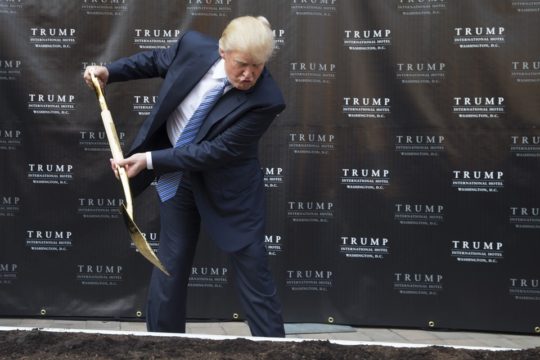UPDATE ON BANKING REGULATION’S LAW IN THE US
by Gianluca Errico NEW YORK CITY. Investors were taken by surprise when Donald Trump won the election. The week 9-16 November 2016 saw the biggest rally for stocks since 2014, worldwide. The U.S. dollar is very strong, rates will be up very soon, so investors are scrambling to adjust their positions to account for an entirely new set of expectations. Some of the early signals the market is giving off seem misguided. But others look rock solid. Banks were rallying because “the ‘break up the banks’ duo of Elizabeth Warren and Bernie Sanders have lost influence.”

But there’s even more to it than that. It has to do with the Dodd-Frank banking regulation law in the US, to prevent banks from engaging in the type of behavior that helped bring about the global financial crisis. The law basically says that banks have to have more ready cash on hand and can’t make their business all about trading risky assets, like mortgage-backed securities. Dodd-Frank law has long been a target of Republicans. They don’t like it because they believe it restricts a bank’s ability to make money. Republicans generally favor less regulation, but today an interesting proposal concerning the Dodd-Frank law could be that banks should have a “buyout” option. That is, banks that get their capital above Dodd-Frank requirements should be able to start adding some exposure to more risky assets (i.e. mortgage backed securities) to boost their earnings power. This is a great idea because it rewards good behavior. If you simply let banks do what they want, they will absolutely put the economy at risk again. They did it in the late 1980s, and they did it 20 years later with the housing bubble. So adding a “good behavior buyout” to Dodd-Frank is a reasonable compromise to keeping banks healthy and also letting them leverage their earnings.

During the battle for the election, Clinton had targeted drug prices in her campaign, whereas Trump seems unlikely to go after any companies. So much so that they had already started to rally before the election. Another catalyst is thatTrump is a businessman. Not a very good one, but that’s beside the point. The single best way he can get his administration off on a good foot is to get corporate America behind him. He can easily do this by simply offering U.S. companies the one-time opportunity to bring foreign cash home and pay a low tax rate, like 10%. And pharmaceuticals like Merck (NYSE: MRK) and Pfizer (NYSE: PFE) have a lot of money overseas. Let them bring it back, and they are likely to put it to work — with acquisitions in the biotech space. Another group of companies has a lot of cash overseas: tech companies. Investors are worried that Trump’s immigration actions might keep these companies from attracting talent from overseas, and so their businesses might suffer. That just doesn’t seem reasonable. Apple is the biggest company in the world. It’s simply not going to get steamrolled by policy. And Apple could have a lot of cash to put to work if there is a tax holiday on overseas cash. Buying them now for a trade is probably a very good idea. Another good move will come if Trump will get an infrastructure bill passed. Republicans have resisted increases in spending under Obama. But that’s because they don’t like him and they haven’t wanted to help him succeed (regardless of what’s good for the country). But now that there’s a Republican in charge, you can bet they will open the purse strings.

Sources: Briton Ryle from Wealth Daily and Investopedia.





